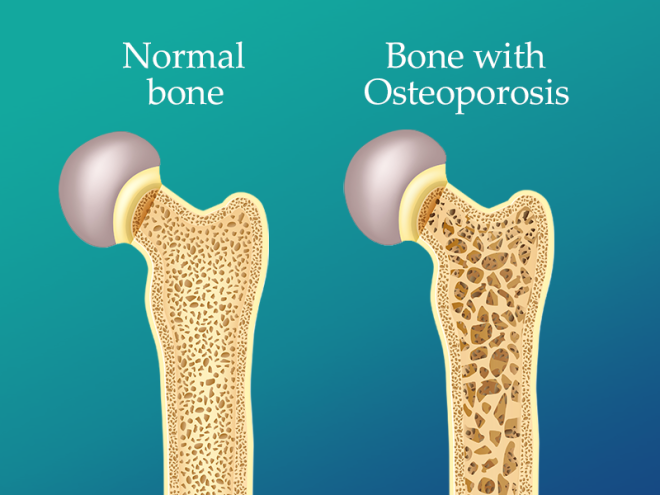- Empty cart.
- Continue Shopping
How to Manage Osteoporosis in Women

Osteoporosis is a condition characterized by weakened bones, making them more susceptible to fractures and breaks. While it affects both men and women, women are at a higher risk, particularly after menopause due to hormonal changes. Managing osteoporosis involves a multi-faceted approach that includes lifestyle modifications, medications, and regular monitoring.
Risk Factors in Women
Hormonal Changes
The decline in estrogen levels after menopause is a significant risk factor for osteoporosis in women.
Genetics
A family history of osteoporosis can increase your risk.
Lifestyle
Factors like poor diet, lack of exercise, and smoking can contribute to osteoporosis.
Diagnostic Tests
Bone Density Test
A bone density test, also known as a DEXA scan, is the primary method for diagnosing osteoporosis.
Blood Tests
Blood tests can help rule out other conditions that may affect bone density.
Treatment Options
Medications
Bisphosphonates
These are the most commonly prescribed medications for osteoporosis, helping to strengthen bones.
Hormone Replacement Therapy (HRT)
HRT can be effective but comes with its own set of risks, including increased chances of breast cancer, blood clots, and heart disease.
Nutritional Supplements
Calcium and Vitamin D
These are essential for bone health and may be recommended as supplements if dietary intake is insufficient.
Exercise
Weight-Bearing Exercises
Activities like walking, jogging, and dancing can help strengthen bones.
Resistance Training
Exercises like weightlifting can also be beneficial but should be done under professional guidance.
Lifestyle Changes
Diet
A balanced diet rich in calcium and vitamin D is crucial. Foods like dairy products, leafy greens, and fatty fish are good options.
Quit Smoking
Smoking can accelerate bone loss, so quitting is highly recommended.
Limit Alcohol
Excessive alcohol consumption can lead to bone loss and increase the risk of fractures.
Monitoring and Follow-Up
Regular check-ups and bone density tests are essential for monitoring the effectiveness of treatment and making necessary adjustments.
Challenges and Considerations
Adherence to Treatment
Sticking to medication schedules and lifestyle changes can be challenging but is crucial for effective management.
Side Effects
Some medications come with side effects like gastrointestinal issues, which may require additional management.
Financial Constraints
The cost of medications and regular tests can be a barrier for some individuals.
In conclusion, managing osteoporosis in women requires a comprehensive approach that includes proper diagnosis, a range of treatment options, and lifestyle changes. While medications like bisphosphonates are commonly used, they should be complemented with dietary improvements and regular exercise. Monitoring is crucial for assessing the effectiveness of the treatment plan and making timely adjustments. By taking a proactive role in managing osteoporosis, women can significantly improve their bone health and overall quality of life.








